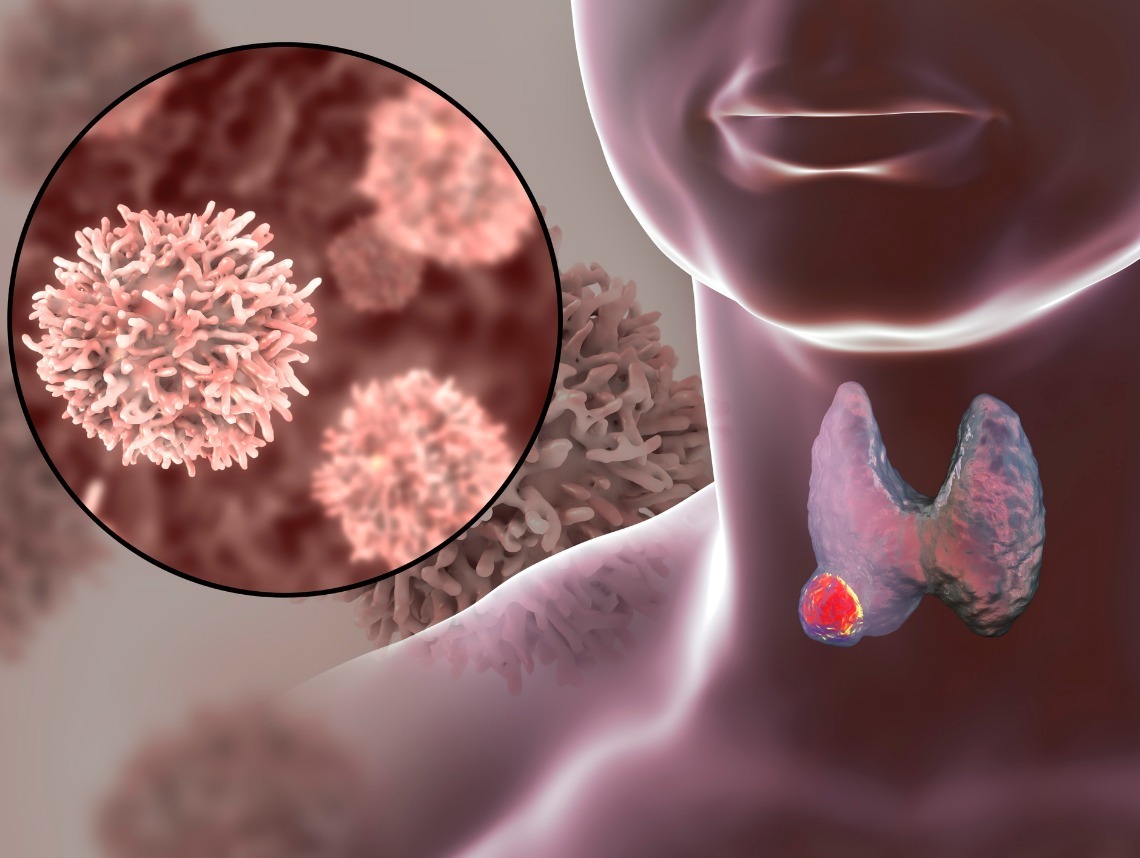Educating yourself and being aware of the potential health risks your aging loved ones face empowers you to modify your elder care plan in meaningful ways that reduce these risks, combat these health concerns, and manage them should they arise. This gives you greater confidence in your ability to give them the highest quality care possible and maintain their overall health and well-being throughout their aging years.
September is Thyroid Cancer Awareness Month. This is the perfect opportunity to join with the rest of the elder care community as well as the healthcare community at large in raising awareness and educating yourself.
Some things you and your aging parents’ elderly health care services provider should know about thyroid cancer include…
What Is Thyroid Cancer?
The thyroid is a gland located in the neck responsible for regulating many functions throughout the body, including the metabolism. While there are several diseases and conditions that can impact the thyroid, thyroid cancer is perceived by many as the most frightening. By understanding thyroid cancer you can help your parents recognize risk factors and detect potential early signs of development so you can get them the care they need as quickly as possible.
Signs and Symptoms of Thyroid Cancer
Early detection of thyroid cancer is vital to prognosis and survival rates. If your aging loved ones complain of any of the following symptoms and you cannot reliably link them to another specific cause, get in touch with their doctor so they can get a thorough examination:
- Difficulty swallowing
- Swollen lymph nodes in the neck
- Vocal changes
- A chronic cough not linked to any other condition or illness
- Pain in the throat or neck
- A lump in the neck indicating a thyroid nodule
There are many other potential causes of these symptoms, which is why it is important to have them checked as soon as possible.
Diagnosing Thyroid Cancer
The only way to determine if a lump in the neck is actually cancerous is through a biopsy, while other methods, including x-rays and CT scans, may be used to determine the extent of the disease.
You should also contact your elderly loved ones’ doctor to schedule screening if you know they were exposed to large quantities of radiation during their childhood or adult years, particularly if radiation was directed at their necks. Most doctors recommend seniors with this risk factor undergo screening at least every two years to detect possible signs of thyroid cancer.
Causes and Risk Factors of Thyroid Cancer
The medical and scientific communities have not identified specific causes of thyroid cancer, but have identified the following risk factors that could increase an individual’s risk of developing this type of cancer:
- Gender: Women are three times more likely to develop thyroid cancer than men
- Genetics: A family history of certain conditions, such as goiters, also known as an enlarged thyroid
- Radiation: Exposure to radiation, particularly high levels directed at the neck
Types of Thyroid Cancer
There are four main types of thyroid cancer, these include:
- Medullary
- Papillary
- Anaplastic
- Follicular
Thyroid Cancer Prevention
Unlike many other types of cancer, there are very few ways you can actually take steps to prevent the development of thyroid cancer. Avoiding all exposure to radiation is truly the only thing you and your elderly loved ones can do to lower your risk for this disease.
Contact Care Options for Kids for Home Health Care Services
If you or an aging loved one are considering in-home elder care in Florida, contact the caring staff at Care Options for Kids. Call today at (888) 592-5855.






